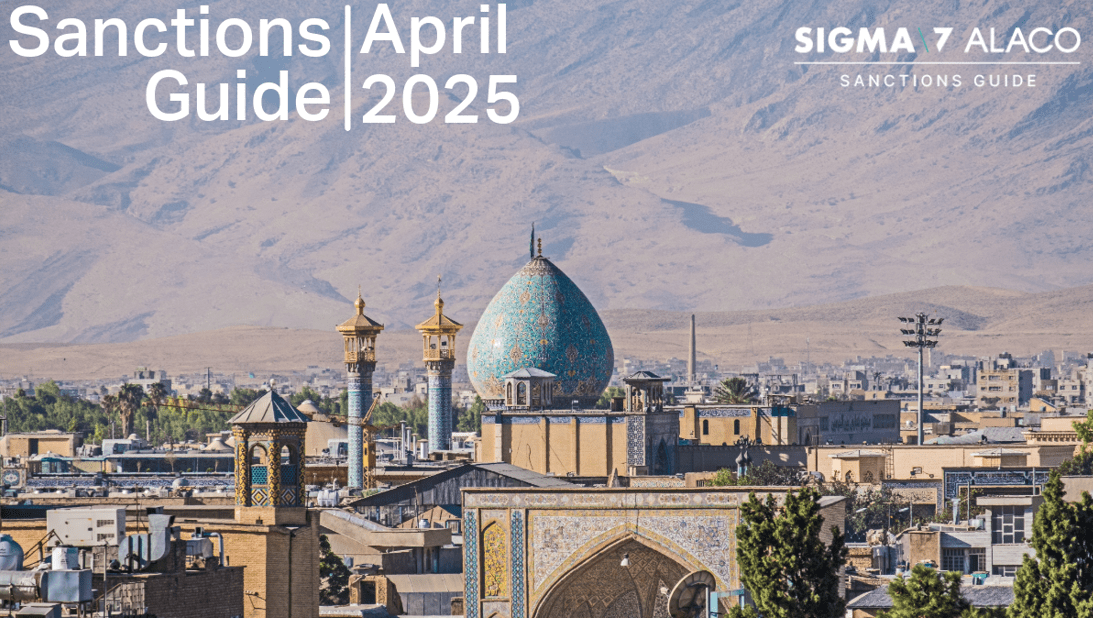Iran was the focus of designations by the US, UK, and EU in April 2025. Elsewhere, the Houthis in Yemen were a key focus for the US, whilst the UK, US and EU have begun easing sanctions against Syria following the fall of the Assad regime. The UK also designated individuals in Moldova, Georgia and Guatemala.
The Trump administration has revoked licences granted to the government of Trinidad & Tobago for cross-border gas projects with Venezuela. Trump has also threatened the Mexican Government with tariffs and sanctions if it does not comply with the terms of the 1944 Water Treaty between the US and Mexico. The Department of State meanwhile announced the revocation of visas granted to all South Sudanese passport holders for its Government’s refusal to accept the return of South Sudanese nationals.
In the enforcement space, the UK handed down its first two criminal convictions for sanctions breaches. Two US citizens have brought a complaint challenging US sanctions on the International Criminal Court. In Gibraltar, a judge ruled that payments to liquidators from a creditor indirectly owned by a sanctioned Russian oil company do not breach UK or EU sanctions.
Iran
- In early April OFAC designated six entities and two individuals based in Iran, the UAE, and China responsible for the procurement of unmanned aerial vehicle (“UAV”) components for sanctioned Iranian UAV manufacturer Qods Aviation Industries (“QAI”). The same day, the US Department of Justice unsealed a criminal complaint charging two individuals and an entity for conspiring to procure these parts for QAI in support of the designated foreign terrorist organisation the Islamic Revolutionary Guard Corps (“IRGC”).
- The US continued targeting Iran with OFAC’s designations of one person, 15 entities and 35 vessels, mostly for transporting and facilitating oil shipments to China using Iran’s shadow fleet. The State Department sanctioned four Chinese entities for engaging in transactions for Iranian petroleum. OFAC also sanctioned an Iranian liquefied petroleum gas magnate, his son, and their 12-company strong corporate network for their role in transporting Iranian petroleum. OFAC later sanctioned five entities and one individual based in Iran for supporting the country’s nuclear programme, as well six entities and six individuals based in Iran and China for their role in a procurement network for ballistic missile propellant ingredients on behalf of the IRGC.
- The EU extended its Iranian sanctions regime for a year, also imposing sanctions on seven individuals and two entities for human rights abuses and the wrongful detention of EU citizens. The UK also designated an individual and an organisation for alleged criminal conduct in Europe.
Regulations Amendments
- The European Parliament has reportedly discussed the suspension of certain sanctions on Syria to boost its economy after the fall of the al-Assad regime in December 2024. The US State Department also suggested conditions for easing US sanctions on Syria in a press release in early April. In late April the UK amended its Syrian regulations to reflect an easement of regulations, at the same time delisting 12 entities, including the Ministry of Defence, Ministry of Interior, and the Syrian National Security Bureau.
- On 1st April 52 US senators sponsored a bipartisan bill to introduce further sanctions against Russia and actors supporting Russia’s aggression in Ukraine, if the Kremlin refuses to engage in peace negotiations. The bill also proposed the introduction of a 500% tariff on imported goods from countries that buy certain Russian products. Later in the month a second bipartisan bill was proposed targeting Russia’s “ghost fleet” of unmarked ships. The European Parliament is reportedly discussing its 17th package of sanctions against Russia.
- The Trump administration revoked licenses granted to the government of Trinidad & Tobago for cross-border gas projects with Venezuela, whilst Trump has threatened the Mexican Government with tariffs and sanctions if it does not comply with the terms of the 1944 Water Treaty between the US and Mexico. The US Department of State issued a press release saying it will revoke all US visas held by South Sudanese passport holders after the Transitional Government of South Sudan refused to accept the return of its citizens who had been removed from the US. Trump also issued an Executive Order requesting a review of certain US export controls on defence items and weapons. The order aims to reduce rules and regulations in foreign defence sales, increase government-industry collaboration, and advance US competitiveness abroad.
- The EU renewed sanctions on Moldova and Myanmar until April 2026. The EU also expanded its Libyan sanctions regime to expand among other things prohibitions on items used for repression in Libya, as well as on goods and technology listed on the EU export controls military list. During the month the EU announced restrictive measures on media operators who broadcast content and advertising produced by designated entities.
Enforcement
- Two US citizens have brought a complaint against Trump, the Department of State, the Department of Justice, OFAC and several others challenging US sanctions on the International Criminal Court (“ICC”). They claim it has prevented them from engaging in human rights advocacy in violation of their freedom of speech. Separately in the UK, the UK foreign office has warned British lawyers who have advised the ICC on Israel’s conduct in Gaza that they risk US sanctions due to their involvement with the ICC.
- In the UK’s first criminal prosecutions for sanctions, which began last month, the Southwark Crown Court sentenced former Governor of Sevastopol Dmitrii Ovsiannikov to 40 months imprisonment and his brother to a 15-month suspended sentence for circumventing sanctions against Russia. Ovsiannikov’s wife was acquitted. In the US, Russian national Oleg Patsulya was sentenced to 70 months imprisonment for his role in exporting US aviation technology to Russia between May 2022 and May 2023. A former US army intelligence analyst was sentenced to 84 months in prison for conspiring to collect and transmit national defence information, including non-public US military information, to an individual he believed was affiliated with the Chinese government.
- In Eastern Europe, an Estonian court sentenced a woman to 16 months in prison for violating the EU’s sanctions against Russia by receiving funds from a designated foundation. The Lithuanian customs criminal service seized EUR 100,000 and sanctioned goods worth EUR 1.5 million in a raid on an unnamed logistics company suspected of breaching EU sanctions on Russia and Belarus.
- In liquidation proceedings heard by the Supreme Court of Gibraltar, a judge found that payments to liquidators from a creditor indirectly owned by a sanctioned Russian oil company do not breach UK or EU sanctions.
- The US Court of Federal Claims dismissed a renewed application relating to shares in Russian designated entity Sberbank that were frozen in May 2022. The UK High Court refused an application seeking further information from the Foreign Office regarding the reasons for a Russian individual’s designation.
- The UK Government reportedly has 90 days to respond to an application submitted by Hamas which challenges its UK terrorism organisation designation.
Other Designations
- The US imposed sanctions on five people, four entities and one vessel comprising a network of Houthi financial facilitators and procurement operatives that transport Russian commodities to Yemen. OFAC later designated the International Bank of Yemen and three of its officials for financially supporting the Houthis, and allowing the Houthis to access the bank’s SWIFT network for international transactions. OFAC also identified eight digital asset wallets used by the Houthis to transfer funds associated with their activities. Later in the month OFAC sanctioned three entities and three vessels for shipping oil to Houthi-controlled ports in the Red Sea.
- OFAC designated Mexican national Jesus Alfredo Beltran Guzman for his role in trafficking narcotics through the Beltran Leyva Organisation, as well as four individuals associated with designated Mexican cartel La Nueva Familia Michocana. OFAC removed the sanctions imposed on two individuals, however: Karina Rotenburg, who remains sanctioned by the UK, and Antal Rogan, the Hungarian Minister-in-charge of Prime Minister Orban’s cabinet who was previously sanctioned under the Global Magnitsky regime for alleged corruption in Hungary.
- The UK sanctioned 12 individuals and one entity under its global anti-corruption sanctions regime, including pro-Kremlin operators responsible for destabilising Moldova, as well as individuals used by leaders to undermine democracy in Georgia and Guatemala. The UK also listed four Georgian nationals under its human rights programme for their actions during protests in Georgia.
- The US Bureau of Industry and Security (“BIS”) published temporary denial orders for the export privileges of Russian cargo charter airline Aviastar-TU for continuing flights between Russia and China without authorisation and Kenyan airline ExHigh Air Space Ltd, which had planned the shipping of US-origin goods to Russia without authorisation. The BIS also updated the US Boycott Requester List, adding 30 entities and removing 18.
- Continuing from last month’s update, Serbian oil and gas company, Serbian Oil Industry, has requested a further sanctions waiver from OFAC to continue its operations.


